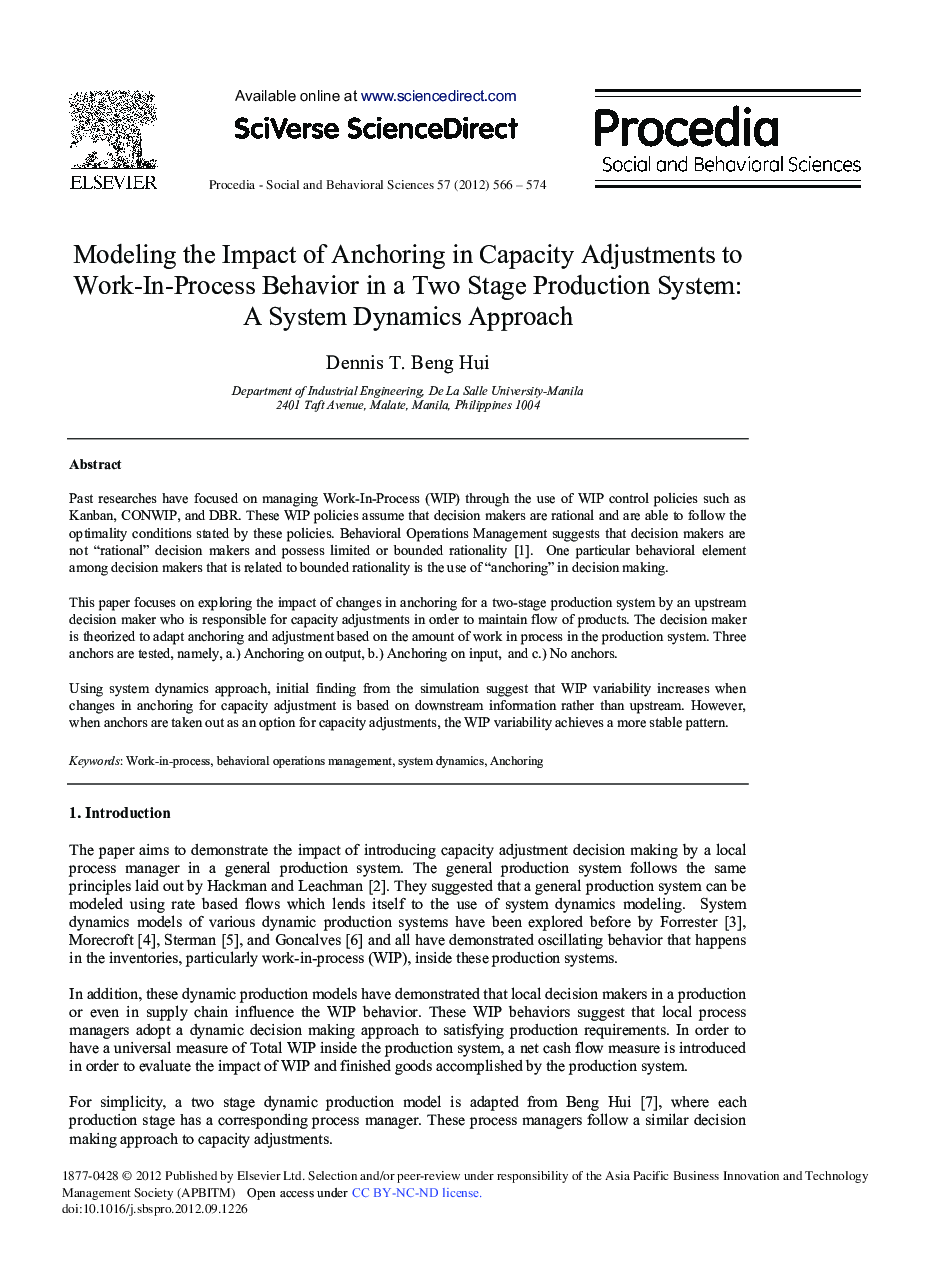| Article ID | Journal | Published Year | Pages | File Type |
|---|---|---|---|---|
| 1120932 | Procedia - Social and Behavioral Sciences | 2012 | 9 Pages |
Past researches have focused on managing Work-In-Process (WIP) through the use of WIP control policies such as Kanban, CONWIP, and DBR. These WIP policies assume that decision makers are rational and are able to follow the optimality conditions stated by these policies. Behavioral Operations Management suggests that decision makers are not “rational” decision makers and possess limited or bounded rationality [1]. One particular behavioral element among decision makers that is related to bounded rationality is the use of “anchoring” in decision making.This paper focuses on exploring the impact of changes in anchoring for a two-stage production system by an upstream decision maker who is responsible for capacity adjustments in order to maintain flow of products. The decision maker is theorized to adapt anchoring and adjustment based on the amount of work in process in the production system. Three anchors are tested, namely, a.) Anchoring on output, b.) Anchoring on input, and c.) No anchors.Using system dynamics approach, initial finding from the simulation suggest that WIP variability increases when changes in anchoring for capacity adjustment is based on downstream information rather than upstream. However, when anchors are taken out as an option for capacity adjustments, the WIP variability achieves a more stable pattern.
